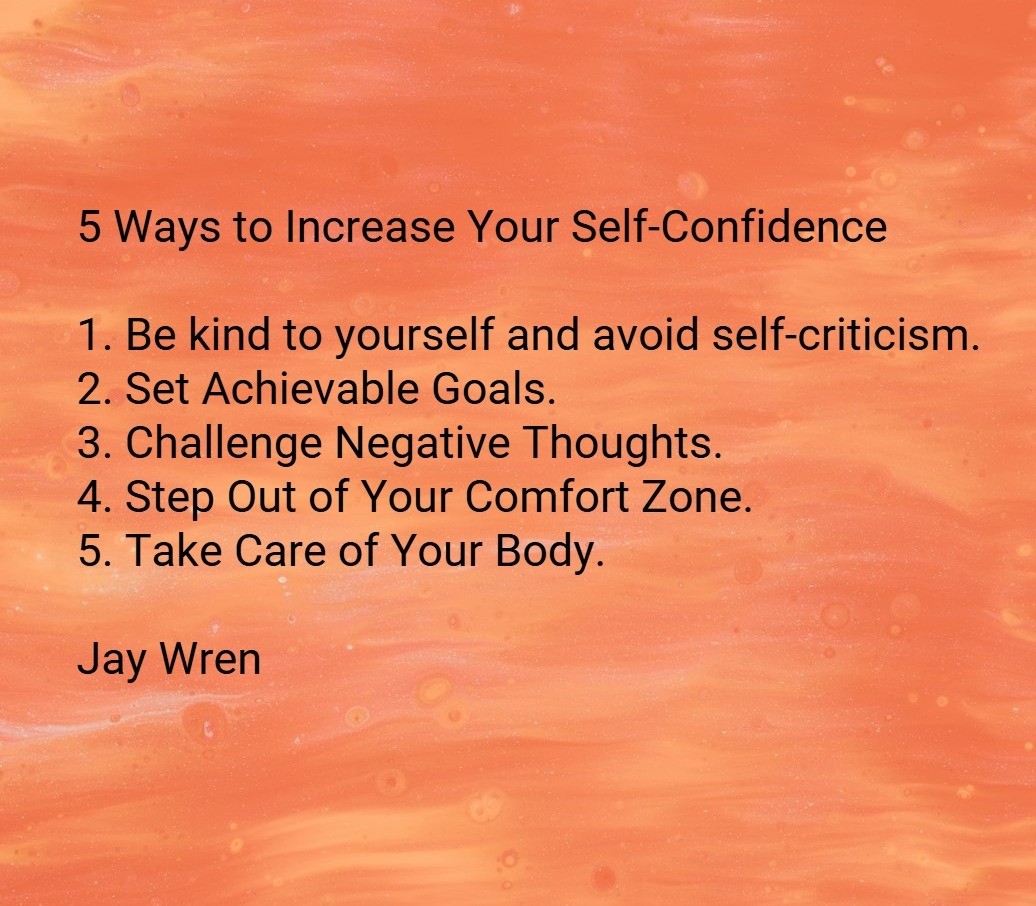Ultimately, Kipling suggests that embodying these traits leads not just to success but to the fulfillment of one’s potential as a human being. This poem resonates across generations because of its universal lessons on character and strength. “If you can keep your head when all about you Are losing theirs and blaming it on…… Continue reading If You Can Keep Your Head When All About You Are Losing Theirs
Category: Confidence
Never equate your self-worth with your success.
“Remember that failure is an event, not a person.” Zig Ziglar Never equate your self-worth with your success.
Courage to Continue
“Success is not final, failure is not fatal: it is the courage to continue that counts.” Winston Churchill Success is not final. Even repeating our actions does not guarantee success. As our circumstances change, the actions we need for success change. For nearly thirty years, I built a recruiting business based on using a telephone,…… Continue reading Courage to Continue
5 Ways to Increase Your Self-Confidence
You are capable of amazing things. Boosting your self-confidence can have a profound impact on various aspects of your life. Here are five practical strategies to help you get started: Practice Self-Compassion: Be kind to yourself and avoid self-criticism. Treat yourself with the same understanding and compassion that you would offer a friend. Set Achievable…… Continue reading 5 Ways to Increase Your Self-Confidence
The Importance of Positive Self-Talk
Self-talk, the internal dialogue we have with ourselves, plays a crucial role in shaping our attitudes, behaviors, and overall well-being. Positive self-talk has the power to transform our lives by boosting our self-esteem, enhancing our mental health, and empowering us to achieve our goals. Understanding Self-Talk Self-talk can be defined as the thoughts and words…… Continue reading The Importance of Positive Self-Talk
The Power of Taking a Break to Breathe
The Power of Breathing: Techniques for a Healthier Life Breathing is something we do every moment of our lives, often without giving it much thought. Yet, the way we breathe can have a profound impact on our physical and mental well-being. In this blog post, we’ll explore the importance of proper breathing techniques and how…… Continue reading The Power of Taking a Break to Breathe
The Quality of Your Thoughts
“The happiness of your life depends upon the quality of your thoughts.” Marcus Aurelius. How do you direct your mind for better thoughts? A gratitude list is a good place to start. Photo by Mona Eendra on Unsplash
Decide to Be in a Good Mood
The best way to change your life today is to decide to be in a good mood. Jay Wren Photo by J Lee on Unsplash
Confidence and Beliefs
People who are truly confident in their beliefs have the ability to listen to the beliefs of other people. ~ Jay Wren Photo by Luke Chesser on Unsplash
Inspiration: How Successful People Find Joy at Work
Do you find yourself depressed about your work? Do you have trouble concentrating? Is it difficult for you to finish your work? Were you excited when you landed your current job and now you dread doing your job? During the decades that I worked as a recruiter, I went through easy times, tough times, and…… Continue reading Inspiration: How Successful People Find Joy at Work
Negotiations: Why do Americans struggle to negotiate?
Negotiations: Why do Americans struggle to negotiate? Negotiation is a skill. You can learn it. A few negotiation skills can help us in all aspects of our lives. In some countries, people regularly negotiate retail prices. Yet in America, many people are frightened of the idea of asking for people to negotiate with them over a…… Continue reading Negotiations: Why do Americans struggle to negotiate?









